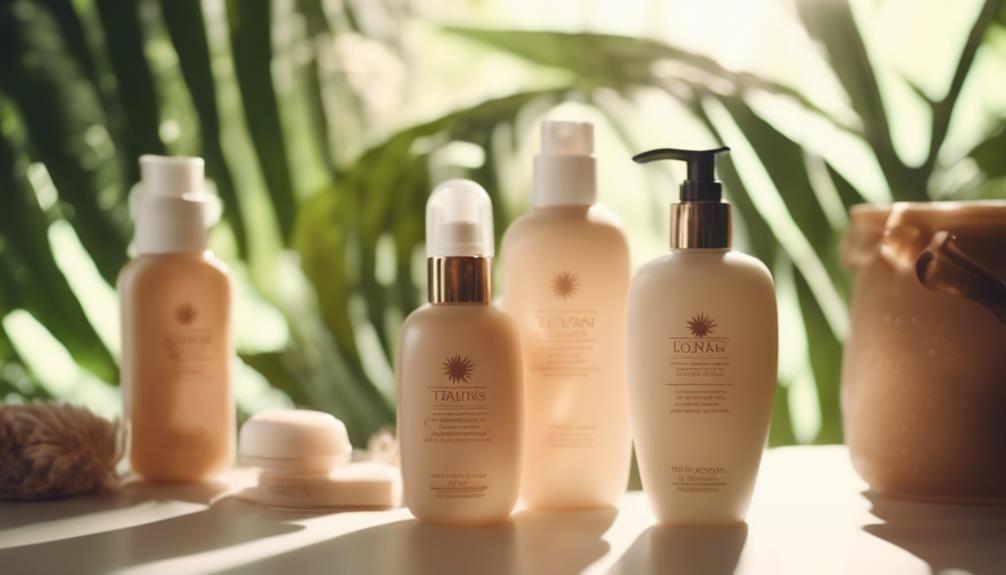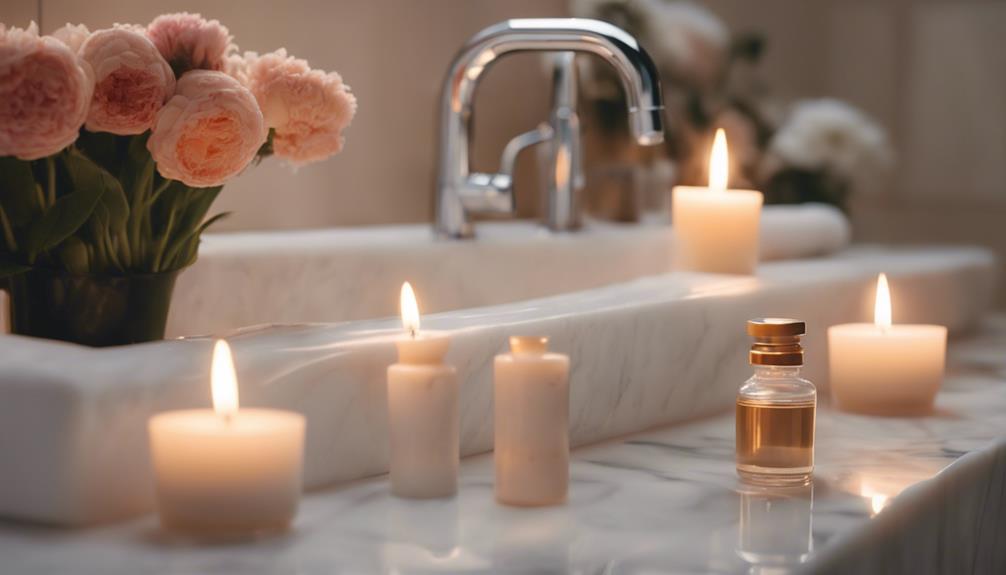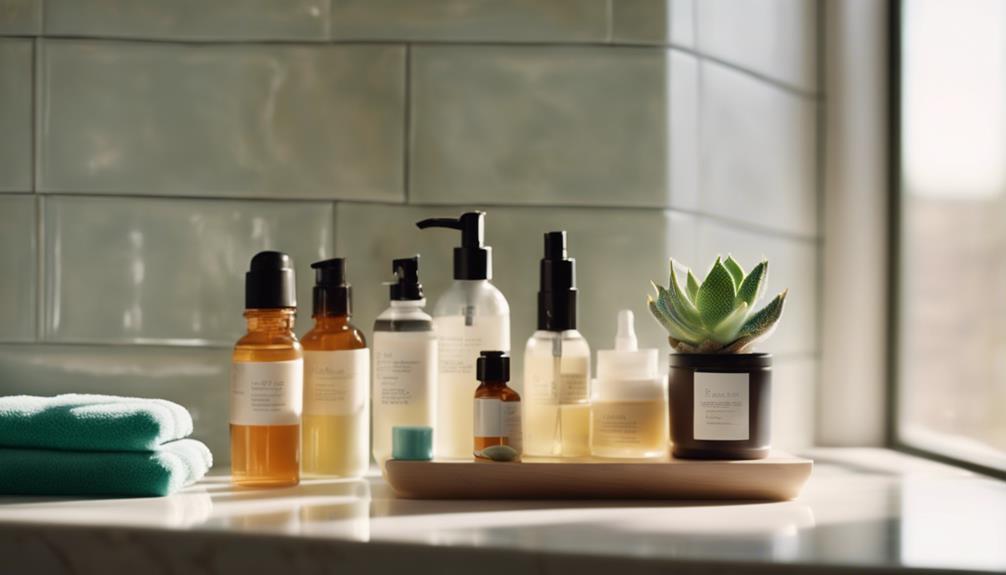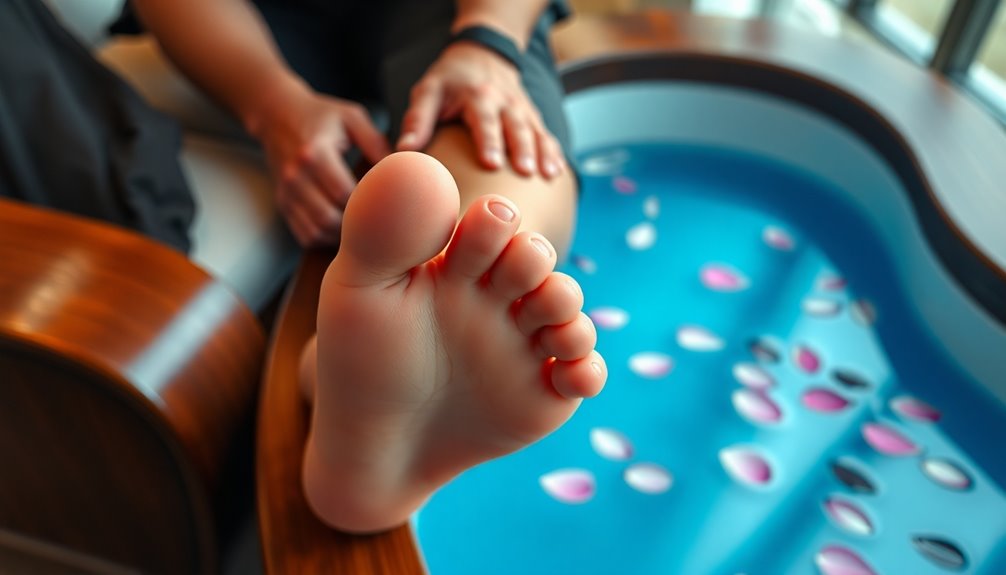If you’re hitting the tanning beds too often, beware of some warning signs. Sensitivity or persistent redness on your skin? That’s a red flag! Itching, rashes, or new moles appearing? These are not just your skin trying to get your attention – they could indicate trouble. Overdoing it can increase your risk for skin cancer, as well as affect your eyes. Therefore, take a break, pamper your skin with soothing lotion, and consider exploring safer tanning options. Interested in learning more about what to watch out for? Stay tuned, as there is more to discover!
Key Takeaways
- Look for unusual skin sensitivity or tenderness after tanning sessions, indicating potential overexposure.
- Persistent redness that doesn't fade may signal skin damage and warrants attention.
- If you experience itching or rashes following tanning, it's a sign to stop and assess your skin.
- Watch for new, irregular moles or freckles, as these could indicate serious skin issues.
Signs of Skin Damage
Recognizing the signs of skin damage is essential to protecting your skin from the harmful effects of tanning bed overuse.
If your skin feels unusually sensitive, gets red, or starts itching after a session, it's time to take a step back. Persistent redness can signal trouble, and nobody wants to look like a lobster!
Keep an eye out for new moles or freckles, too—if they're irregular or changing, you should definitely consult a professional.
Think of your skin like a garden: if you overwater it, it suffers! So, if you notice peeling or dryness, give your skin a break.
Your future self will thank you for treating it right and avoiding those painful signs of distress!
Long-term Skin Cancer Risks

Overlooking the signs of skin damage can lead to serious long-term risks, including a considerably increased chance of developing skin cancer from tanning bed use.
If you think that golden glow is worth it, consider this:
- Tanning beds raise melanoma risk by 75% if you start before age 35.
- You could be inviting basal cell carcinoma into your life.
- Actinic keratoses (that sounds fancy, right?) can develop from too much UV exposure.
Eye Health Implications

Tanning bed use not only damages your skin, but can also seriously harm your eyes, increasing the risk of conditions like cataracts and macular degeneration. You might not realize it, but those UV rays can sneakily harm your peepers!
| Potential Eye Damage | Description |
|---|---|
| Photokeratitis | A painful sunburn of the cornea, making your eyes gritty. |
| Cataracts | Clouding of the lens, which can blur your vision over time. |
| Macular Degeneration | Damage to the retina, leading to vision loss. |
| Increased Cancer Risk | Higher chances of skin cancer around your eyes. |
Recognizing Skin Distress Signals
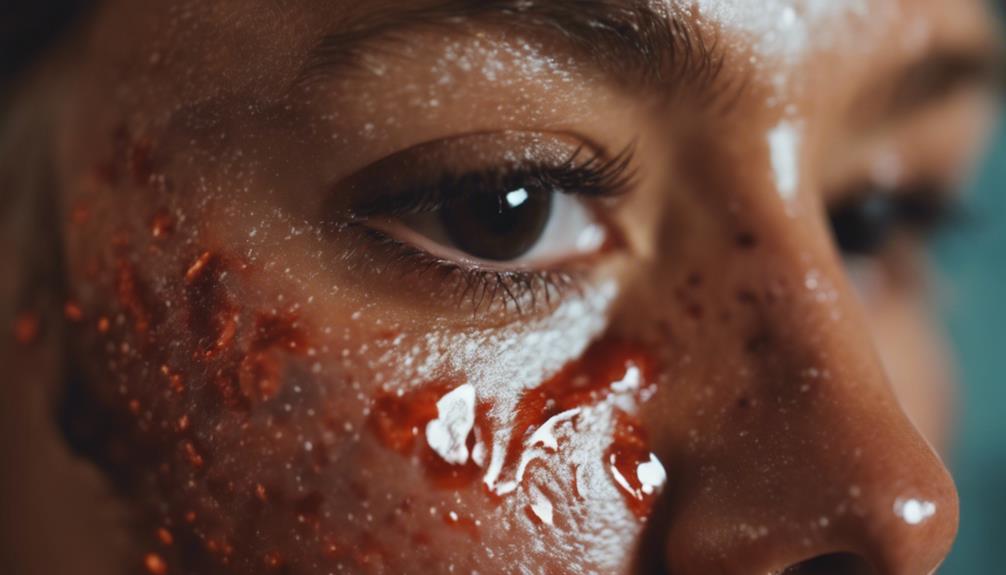
It's crucial to pay attention to your skin's reactions after using tanning beds, as they can signal distress and potential damage. Think of your skin as a friend giving you hints—if it's not feeling great, you should listen!
Here are some key signs to watch for:
- Unusual sensitivity or tenderness
- Persistent redness that won't go away
- Itchiness or the development of rashes
If you notice any of these, don't ignore them! Just like how you'd check in on a friend who's acting a bit off, your skin deserves the same care.
Immediate Actions to Take
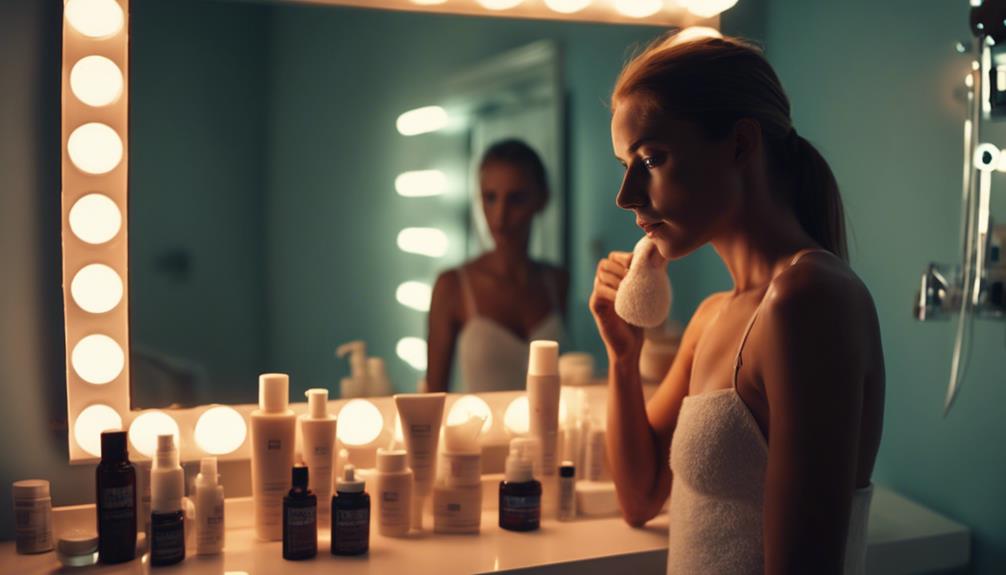
Recognizing skin distress signals means you need to take immediate action to protect your skin's health and prevent further damage. If you notice redness, itchiness, or any new spots, it's time to hit the pause button on those tanning sessions!
First, give your skin a break—seriously, it deserves a vacation! Next, hydrate your skin with soothing lotions or aloe vera to calm irritation. If any spots change shape or color, don't wait—call a dermatologist faster than you'd run for pizza!
Also, steer clear of tanning beds until your skin feels normal again. Remember, your skin is like a superhero; treat it well, and it'll keep fighting for you!
What's your favorite way to pamper your skin?
Alternatives to Tanning Beds

Taking a break from tanning beds opens up a world of healthier alternatives for achieving that sun-kissed glow without risking skin damage. You can embrace these options and still look fabulous!
Check out these fun alternatives:
- Self-Tanning Lotions: They give you a golden hue without UV exposure.
- Spray Tans: Quick and easy, a spray tan can make you feel like you just got back from the beach!
- Bronzing Powders: Dust some bronzer on your cheeks for a natural-looking glow.
Trending Topics in Tanning Safety
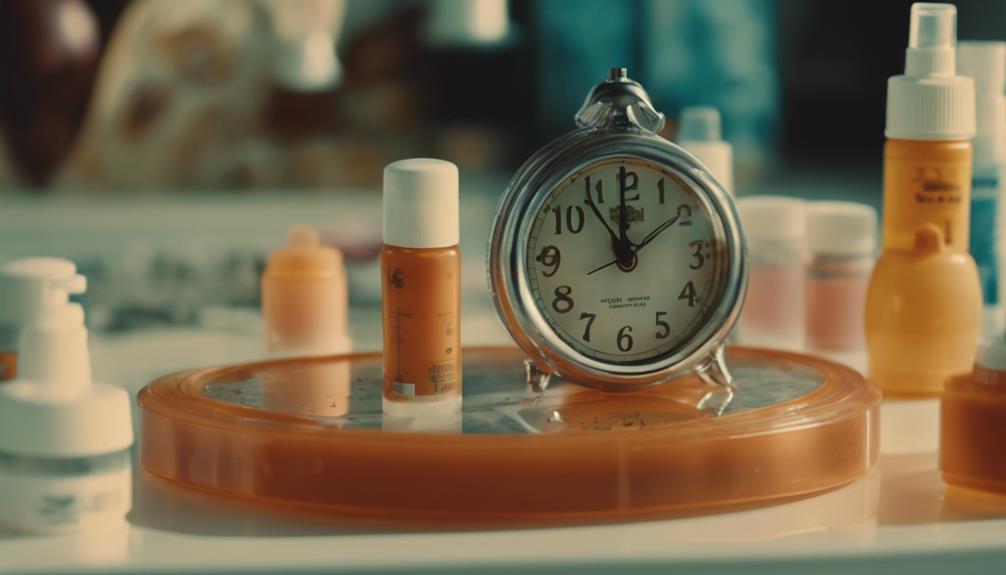
Several trending topics in tanning safety highlight the importance of protecting your skin while achieving that desired glow.
For starters, have you heard about safer tanning bed alternatives? They're all the rage, and they let you shine without the risks.
Plus, proper cleaning techniques for tanning beds are more vital than ever—after all, who wants to tan on a germy surface?
Eye health is another hot topic; protective goggles are a must to avoid those pesky UV-related injuries.
And let's not forget skin prep! You wouldn't bake a cake without prepping the pan, right?
Staying informed about these trends helps you make smarter choices—because your skin deserves all the love and care!
Frequently Asked Questions
How Often Is It Safe to Use Tanning Beds?
You should limit tanning bed use to no more than once a week. This helps minimize skin damage and reduces the risk of long-term issues like premature aging and skin cancer. Always prioritize skin health.
What Are the Best Moisturizers for Post-Tanning Care?
Oh sure, slather on that cheap lotion! But really, you need a good moisturizer packed with aloe and vitamins. It soothes your skin and helps it recover, keeping you looking fabulous and not like a sunburned lobster.
Can I Still Tan if I Have Sensitive Skin?
If you have sensitive skin, you can still tan, but take precautions. Start with shorter sessions and use products designed for sensitive skin. Always moisturize afterward to soothe and protect your skin effectively.
What Are Natural Alternatives to Tanning Beds?
You can achieve a sun-kissed glow naturally by using self-tanners, bronzers, or natural oils like coconut oil. Spending time outdoors safely, with sunscreen, also helps you develop a healthy, radiant tan without UV exposure.
How Do I Properly Clean Tanning Bed Equipment?
Cleaning tanning bed equipment's essential; think of it as polishing a diamond! Wipe surfaces with disinfectant, focusing on the bulbs and acrylics. Don't forget to use a clean cloth to avoid spreading bacteria.
Are Tanning Beds Safe for Vitamin D Intake, or Can They Lead to Overuse Warning Signs?
Tanning beds may provide a way to “get your vitamin d boost“, but experts warn against overuse. While sunlight helps the body produce vitamin D, excessive UV exposure can lead to skin damage and increase the risk of skin cancer. It’s important to find a balance for maintaining optimal vitamin D levels without risking your health.
Conclusion
So, before you hop into that tanning bed for a quick glow, think twice!
Your skin's health is way more important than a temporary tan. Remember those warning signs—like redness or new spots? They're your skin screaming for help!
If you ignore them, you might be playing a risky game. Instead, why not explore safer ways to achieve that sun-kissed look?
Your skin will thank you, and who wouldn't want to keep their glow for years to come?


